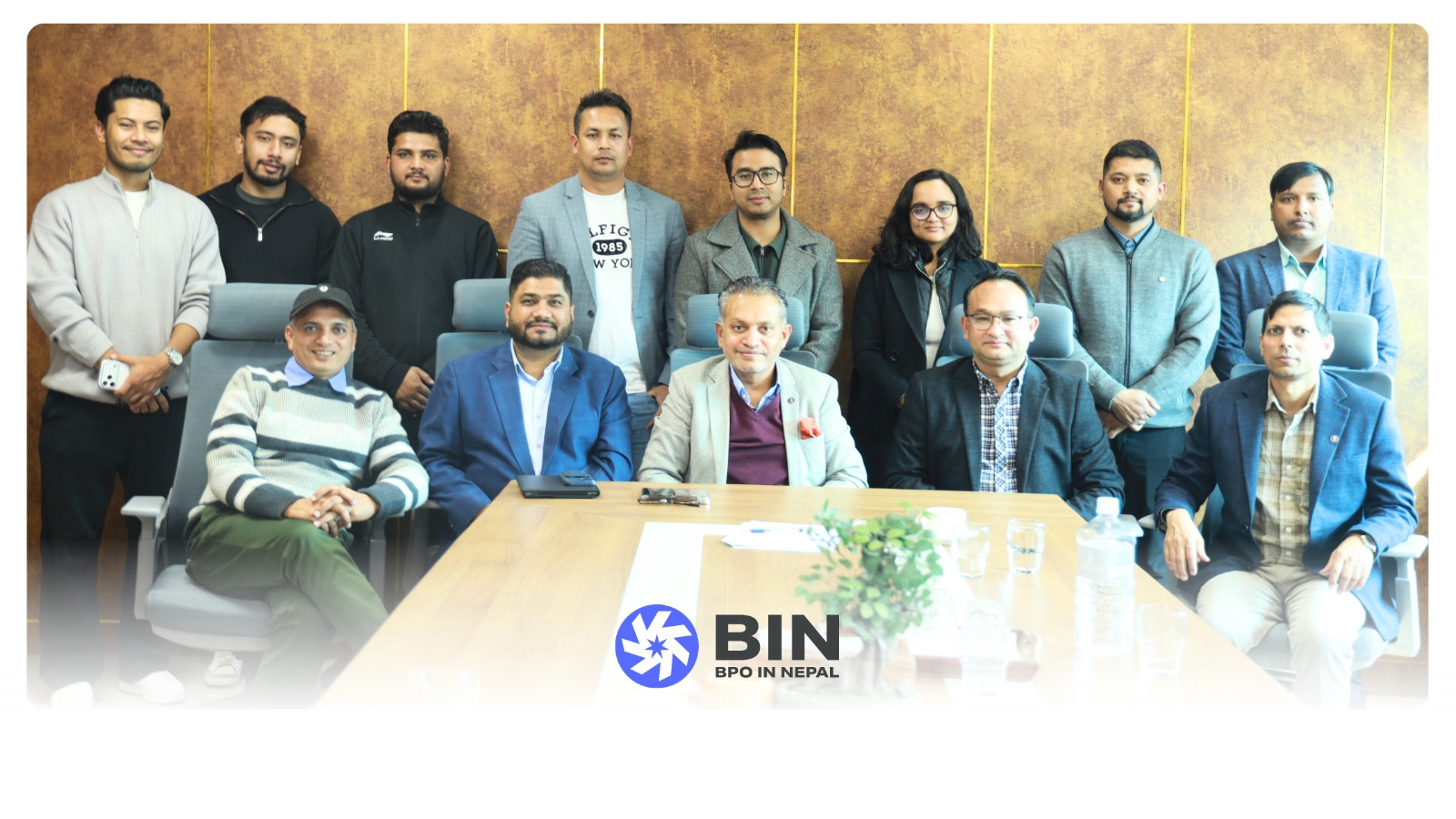Why Accurate Data Entry Is the Backbone of Every Business

By Samunnati Shrestha, Creative Lead at BIN
Category Data Entry & Back Office Support
Published June 26 2025
Key Highlights
Accurate data entry might seem mundane, but it is pivotal to operational efficiency, analytics insights, customer satisfaction, compliance, and profitability. Errors in data entry ripple across systems causing misinformed decisions, wasted hours, regulatory fines, and reputational damage. In this article, we examine the reasons precision matters from improving customer experience to enabling scalable automation and how businesses, especially in Nepal, can benefit from partnering with expert teams like BIN to safeguard data integrity.
The Hidden Costs of Poor Data Accuracy
Inaccurate data is more than a typo; it’s a silent tax on operational efficiency. Every wrong digit or misplaced entry forces reconciliation, follow-up, and sometimes even lost customers. Studies consistently show that flawed data costs organizations 12–25% of productivity, pushing skilled teams into correction rather than innovation. When sales orders are delayed or billing goes awry, customers lose trust. Internally, misaligned forecasts waste resources and skew hiring decisions.
Behind every error is the human touch; misread handwritten forms, mis-keyed numbers, formatting inconsistencies. In a digital world that promises automation, poor data quality undermines every layer from dashboards to decision making. When a CRM lists customers with incorrect names or misdirected contacts, marketers lose reach, support teams deliver subpar service, and analytics misinterpret demand signals. And in heavily regulated industries, these errors can lead to compliance breaches, legal fines, and damaging audits.
Integrity in Customer Experience
The moment a potential customer interacts with your brand, they expect accuracy whether booking a ticket, updating an account, or receiving tailored recommendations. A misplaced detail can result in a missed appointment, delayed shipment, or duplicate contact attempts. That erodes brand trust immediately and creates a cumulative churn effect over time.
At BIN, we see countless examples: payment portal entries keyed incorrectly, addresses with swapped fields, or phone numbers entered with typos all leading to low deliverability or frustrated customers. On support ticketing systems, miscategorized or incomplete entries cost response teams time and credibility. Customers expect brands to know and speak to them correctly. Consistent, accurate data entry makes that possible whether it’s using correct names in email greetings or shipping to the right address the first time.
Operational Efficiency: Automation Depends on Accuracy
We live in a time of robotic process automation, machine learning, and digital workflows. But no matter how sophisticated the technology, it relies heavily on foundational data integrity. Automation systems ingest raw data whether extracting invoices, processing applications, or syncing inventories. Flawed data translates into broken bots and failed workflows.
When invoice lines are captured with mismatched tax codes or dates, bots cannot reconcile them. When CRM records have missing or misformatted contact details, automated outreach fails or bounces. If inventory systems capture erroneous quantities, fulfillment teams manage shortages and compensation requests multiply.
Accurate data entry provides the clean, predictable inputs that automation engines require. It enables pipelines to run error-free and supports scaling without operational breakdown. For businesses transitioning from manual to semi-automated workflows, this is critical: the upstream data quality must be strong enough to support technological investments downstream.
Data Quality Drives Better Decision Making
Every dashboard, forecast, and revenue projection relies on underlying data. Financial planning, inventory predictions, marketing performance; all depend on the precision of earlier steps. When historical data is clean, decision-makers trust the outputs. When it’s noisy, every insight comes with an asterisk, reducing confidence and willingness to act.
BIN works with global and Nepal-based clients to capture market performance accurately from sales conversions to regional performance. Clean input data allows real marketing ROI analysis, correct lifetime customer value (LTV) calculations, and optimized campaign adjustments. Bad data, on the other hand, leads to misguided product launches, misguided staffing, and erroneous investment decisions.
Regulatory Compliance and Risk Management
In many industries: finance, healthcare, insurance, and e-commerce data accuracy is legally obligated. Regulations such as GDPR, PCI-DSS, HIPAA, KYC/AML, and others require strict accuracy, audit trails, and traceability. Violations result in steep fines and serious reputational damage.
Misentered customer data, mistaken account flags, or unconventional identifier formatting can trigger compliance breaches. Even when errors are sporadic, audit points accumulate rapidly, triggering investigations and penalties. That’s why savvy businesses treat data entry as a compliance-critical operation not just administrative overhead.
The Power of Clean Data for Marketing & Customer Segmentation
Today’s personalized marketing relies on micro-segmentation: precise age, location, preferences, purchase history, and engagement scores. Each segment depends on accurate data. If birth dates are wrong or interest preferences misplaced, campaigning becomes wasteful targeting wrong offers or violating sensitivities (e.g. sending discounts after birthdays that aren’t real).
BIN supports clients with CRM entry, survey capture, and subscription segmentation. We follow strict validation rules, cross-reference existing profiles, and apply conditional formatting to ensure each record aligns with segmentation goals. Cleaner data allows precision targeting; emails, SMS, offers reach the right person at the right time with the right content.
Financial Accuracy and Fraud Prevention
For finance teams, each ledger entry, invoice record, expense claim, or transaction touchpoint originates as manual data. Accuracy here is non-negotiable. Misentered amounts can lead to wrong vendor payments, misclassified expenses, or incorrect tax submissions. In worst-case scenarios, payments go to wrong bank accounts.
Fraud detection systems depend on pattern recognition. If data inputs fluctuate arbitrarily; such as multiple invoice formats or misentered amounts, fraud indicators may be missed or triggered erroneously. BIN’s data entry hubs follow 4-eyes verification for high-risk entries to ensure ledger accuracy, and maintain logs that support audit trails.
The Role of Verification and Multi-Layer Quality Control
Achieving accuracy is more than typing carefully; it’s about systems, cross-validation, and checks. BIN implements multi-step validation:
- Real-time form validation and formatting rules prevent errors upfront
- Contextual error-checking flags out-of-bound values or inconsistent entries
- Duplicate detection prevents redundant records
- Cross-system reconciliation validates data correctness
- Supervisory sampling verifies that key fields are 100% accurate
This scaffolding ensures that rather than hoping for accuracy, we build it into data processes by design.
Scaling Data Services in Nepal with BIN
Nepal offers a growing pool of skilled, English-fluent graduates trained in IT and business process disciplines. With bilingual staff, cost-effective operations, and remote-first infrastructure, BIN maintains accurate data entry services for clients around the world. Our teams handle:
- Invoice processing and accounting data entry
- Customer and lead generation data input
- Content tagging and cataloging
- Survey and registration forms
- E-commerce product uploads
- CRM and ERP record maintenance
By hiring locally, we combine global service standards with local cost advantages; resulting in error rates below 0.5%, accuracy SLA delivery, and real-time transparency for clients.
Technology Augmentation: AI, OCR, and Human-in-the-Loop
The future of data entry is collaborative: AI does the heavy lifting and humans verify. BIN employs OCR systems that auto-capture invoices, receipts, and forms. Then our trained agents review data, confirm anomalies, and correct metadata. This not only speeds up processing but maintains accuracy.
As OCR and AI models improve, so do our service levels. Agents become “data supervisors,” focusing on context, title misclassification, and ambiguous entries while AI captures routine, clear fields. This partnership between technology and human expertise improves accuracy, speed, and scale.
Governance, Documentation, and Role Clarity
Accurate data requires clear ownership. BIN builds data governance plans including:
- Data stewardship roles
- Standard operating procedures (SOPs) for each flow
- Structured naming conventions and version control
- Access restrictions and change audit trails
By coordinating with client IT and compliance teams, we ensure each workflow from input to archival follows governance protocols. That means trusted data, traceable changes, and fewer errors over time.
Continuous Improvement Through Metrics and Feedback
Accuracy is dynamic. BIN tracks KPIs such as:
- Entry error rates by project
- Turnaround time and batch size
- Verification mismatches
- Rework and revision frequency
- Client satisfaction surveys
We analyze error patterns: typos, duplicate conditions, format mishapennings and update training, templates, and form designs accordingly. Regular client reviews ensure evolution; data structures adapt to changing business needs.
Best Practices to Build a Data-Driven Organization
To make data accuracy central, businesses need:
- Data champions in leadership
- Regular audits and training refreshes
- Integrated validation at every entry point
- Clean, user-friendly forms
- Hybrid AI-human workflows
- Metrics transparency and periodic improvement
- Clear data governance frameworks
When these are in place supported by external partners with proven discipline like BIN, data quality becomes a competitive advantage, not a cost.
The Road Ahead: Opportunities for Nepal’s Data Services
Nepal’s digital BPO sector continues to mature. With focus on quality, English fluency, and technology integration, companies like BIN position themselves to support growth-stage enterprises worldwide. We’re investing in AI skills, OCR training, compliance lineage insight, and domain familiarity from healthcare to banking making Nepal a trusted hub for precise data services.
Conclusion
Accurate data entry underlies every layer of a modern business. It’s not just administrative work; it’s strategic infrastructure that supports operations, customer experience, compliance, marketing insight, and automation. The ripple effects of poor data can cripple growth and reputation. Conversely, embracing accurate data entry and partnering with specialized teams like BIN, turns data from a risk to a reinforcing asset.
If your organization aims to scale operations, ensure compliance, improve automation, or extract meaningful insights from raw data, accurate data entry is the foundation. BIN is ready to support you with best-in-class processes, technology augmentation, and a culture of precision. Because when your data is accurate, your business performs better and your customers feel that consistency in every interaction.





